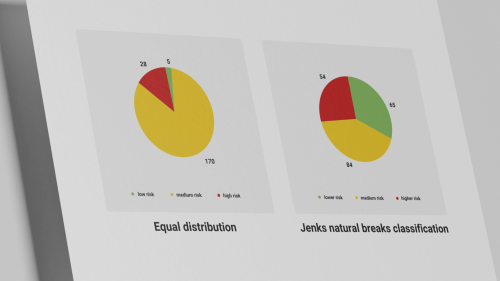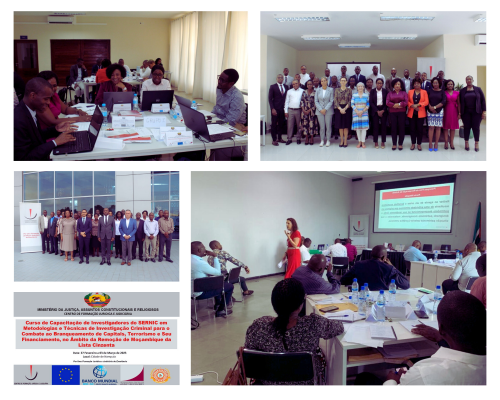AML risks in Pakistan: consequences of the latest FATF report

Pakistan has jumped up the Basel AML Index, the Basel Institute’s independent, data-based index of the risk of money laundering and terrorist financing (ML/TF) around the world. The country’s risk score rose from 6.45 to 7.66 out of 10, where 10 equals the highest assessed risk of ML/TF.
The next Expert Edition update of the Basel AML Index will reflect these changes. The Public Edition, which is released annually, will be updated next August.
The reason for the sudden increase was a new Mutual Evaluation Report for Pakistan published in October 2019 by the Financial Action Task Force (FATF), the intergovernmental organisation that designs and promotes policies and standards to combat financial crime.
FATF MERs – a primary source for assessing AML/CFT risks
FATF Mutual Evaluation Reports (MERs) are a primary data source for assessing the quality of a country’s legal and institutional framework for anti-money laundering and counter financing of terrorism (AML/CFT) and its application in practice. However, the evaluations are conducted infrequently and the methodology has evolved over time, making comparability among countries with old and new FATF evaluations more difficult.
In Pakistan’s case, the previous MER was issued in 2009 and based on the 2004 assessment methodology, which measured only the technical compliance of Pakistan’s AML/CFT framework with the FATF 40 Recommendations. The 2019 report is based on the fourth-round methodology, which assesses not just the technical compliance of the framework but its effectiveness in real life.
This new focus on effectiveness is a major reason for the country’s FATF sub-score in the Basel AML Index jumping from 6.12 to 8.50 out of 10. Since FATF scores have a 35 percent weighting in the index, this led to the dramatic increase in Pakistan’s overall risk score.
What do the numbers tell us?
Of the 40 Recommendations, the FATF report assessed that Pakistan fully complied with only one, largely complied with nine, partially complied with 26, and missed four parameters. On average, technical compliance is 39 percent. Out of the countries assessed with the latest FATF methodology, only Haiti, Mauritania and Madagascar demonstrate lower results.
The effectiveness of Pakistan’s AML/CFT measures, which the FATF evaluates according to 11 “immediate outcomes”, is only 3 percent. This low level of effectiveness is depressingly common: Madagascar, Myanmar, Senegal and the Seychelles have achieved the same result.
Where are the main problems?
The FATF MER indicates that the principal risk areas of the country are associated with terrorist financing risks. The risks are driven not only by internal weak regulations and supervision in this area, but also by Pakistan’s geographical proximity to Afghanistan and Iran.
According to the report: “Corruption, drug trafficking, fraud, tax evasion, smuggling (including currency), human trafficking and organised crimes are major predicate offences to money laundering.” Other issues are the informal economy and use of the informal money transfer system of hawala. “Pakistan has made some efforts to close down hawala and hundi operators, but the challenge remains to address issues associated with the informal economy.”
In addition, Pakistan has not assessed ML/TF risks concerning all legal persons. There is little public information available on key issues such as the number of cooperatives and trusts in the country, including a form of Islamic charitable trust known as waqf. Financial intelligence is used only minimally to combat ML/TF and the country’s law enforcement efforts to address ML/TF are not commensurate with its risks.
Consequences of being on the FATF’s grey list
Pakistan has been on the FATF list of jurisdictions with strategic deficiencies, known colloquially as the grey list, since June 2018. It was previously listed by the FATF in 2008 and from 2012 to 2015. During the FATF’s October plenary meeting in Paris, the group expressed severe concerns over the overall lack of progress by Pakistan to address its TF risks. The FATF strongly urges Pakistan to complete its full action plan by February 2020.
According to the latest FATF assessment, Pakistan's financial system continues to pose a risk to the international financial system because of strategic deficiencies in its ability to prevent terror financing and money laundering.
Being on the FATF grey list may have a negative impact on the country’s ability to access international lending instruments and decrease its attractiveness for foreign investments. Additionally, international financial institutions may apply enhanced due diligence before doing business with Pakistan and conduct enhanced transaction checks during any relationship.
Photo by Nazim Laghari on Unsplash.




